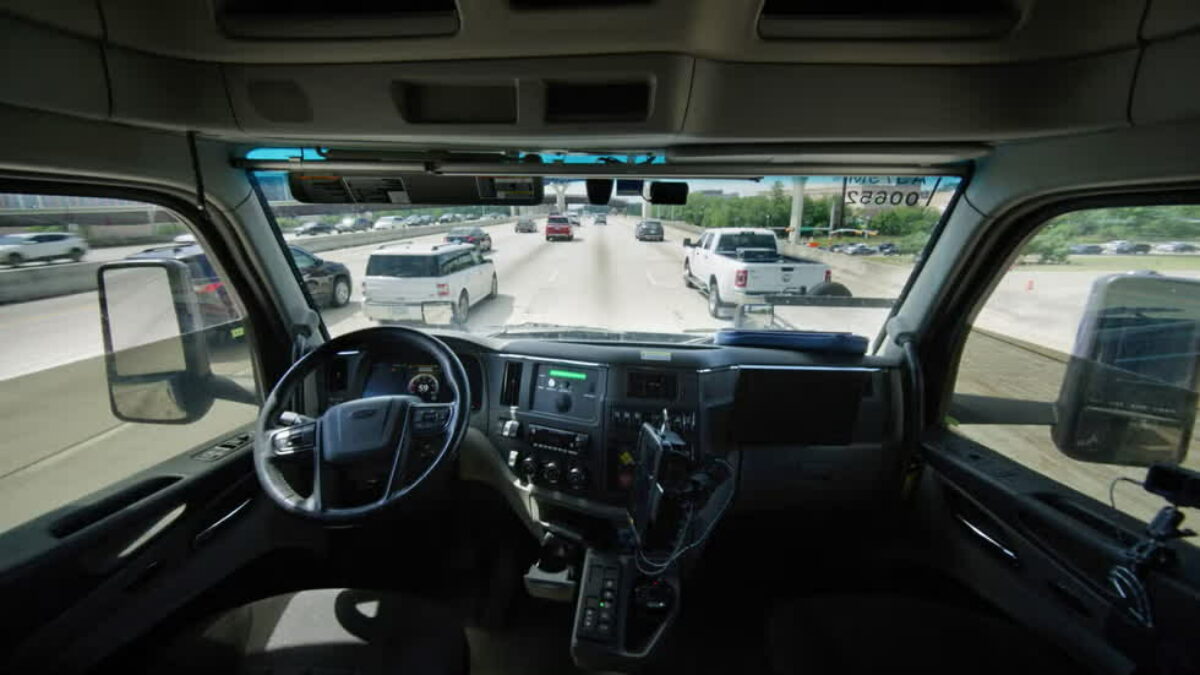SO WHAT DO I KNOW?
Thoughts on Replacing Three Million Truckers With Algorithms
The horse is here to stay, but the automobile is only a novelty – a fad.”
That spectacularly wrong prediction was made by William H. D. McMillan, President of the Michigan Savings Bank, when advising Henry Ford’s lawyer, Horace Rackham, not to invest in the Ford Motor Company.
At the risk of sounding like Mr. McMillan, I’ll go out on a limb and say this: I don’t believe America will see fully autonomous semi-trucks dominating our highways in my lifetime. Frankly, I don’t think we should.
This issue came to my attention when Fox News ran a story on September 2 with the headline: “Will autonomous trucks replace drivers by 2027?”
As the owner of a transportation firm, I can see the temptation. A fleet of driverless trucks would appear to cut costs and reduce human error. But reality isn’t that simple. Our company employs 150 drivers, many of whom have been with us for decades. They are the backbone of our business, and we have been family-run for over 78 years. Replacing loyal employees with machines isn’t just impractical, it’s wrong. And we’re not alone; most trucking companies must feel the same about their drivers.
Beyond the human cost, the ripple effects would devastate the trucking ecosystem: truck stops, roadside diners, motels, and communities built around serving drivers. Eliminating three million jobs nationwide isn’t just an economic disruption – it’s a social earthquake.
Then there is safety. As a grandfather, I cannot stomach the thought of 80,000 pounds of steel, rubber, and freight barreling down the interstate behind my children or grandchildren, guided not by a seasoned driver but by a computer algorithm. Insurance companies surely share that unease, especially when we consider that about 80% of car-truck accidents are the fault of the car driver. How will a computer program anticipate human recklessness?
Yes, some companies are already testing. A Texas route between Dallas and Houston currently uses autonomous trucks daily. One developer even boasts of hauling 10,000 loads safely over 3 million miles. I’d wager those numbers have been massaged, and that the problems aren’t being publicized.
Other concerns include:
- Technology risks: software glitches and hacking could redirect freight, disable trucks, or worse.
- Weather and unpredictability: snow, ice, and fog remain a massive hurdle.
- Basic logistics: Who opens trailer doors, secures flatbed loads, or solves problems at the dock?
- Costs: New trucks may run $250,000–$500,000, double current prices. Most carriers can’t absorb an extra 15–20 cents per mile and stay competitive.
- Regulation: states will have wildly different rules, and uniform laws seem unlikely.
- Liability: When a crash occurs, will blame fall on the carrier, the manufacturer, or the software developer? The trial lawyers are already licking their chops.
- Tax revenue: Fewer payroll taxes from drivers will mean governments will look elsewhere to fill the gap.
Autonomous trucks may one day be part of our industry, but they will not replace human drivers wholesale. Trucking is not just about moving freight; it’s about judgment, responsibility, and human grit – the kind of qualities no algorithm can replicate.
So perhaps I do sound like McMillan warning against the automobile in 1903. But here’s the difference: the automobile quickly proved itself useful, safe, and accessible to ordinary Americans. Autonomous trucks are none of those things yet.
For me, this isn’t just theory. It’s personal. As a grandfather, I trust a driver with thirty years on the road far more than I’ll ever trust an algorithm. Behind every wheel sits not just skill, but judgment, responsibility, and a very human instinct to protect the lives around them. That’s something no computer program can replicate.
Yes, the hype will continue, and investors will pour billions into self-driving startups. But those of us in the trenches of freight know the truth: until technology can match the experience of a seasoned driver, autonomous rigs aren’t progress. Instead, they’re just another expensive fad.
By the way, Horace Rackham ignored that advice – and made millions. So, what do I know?



